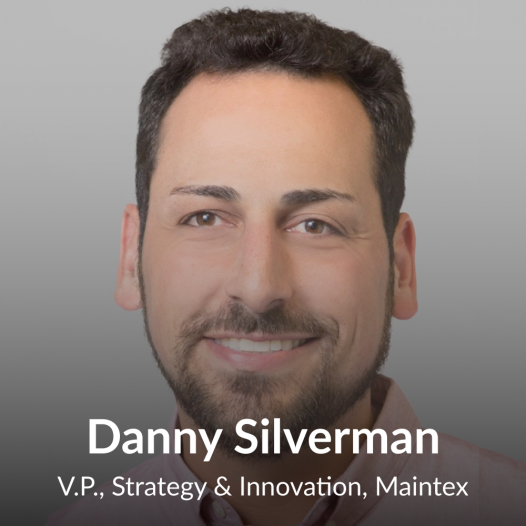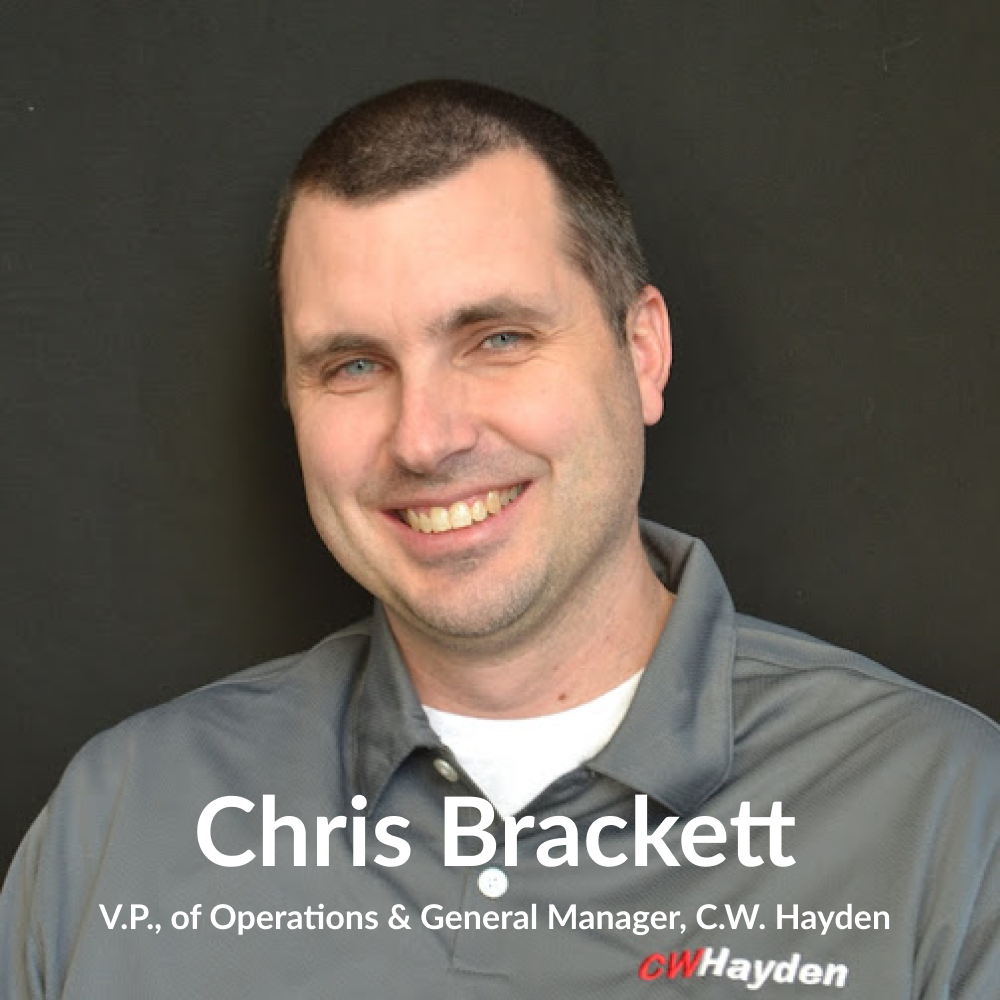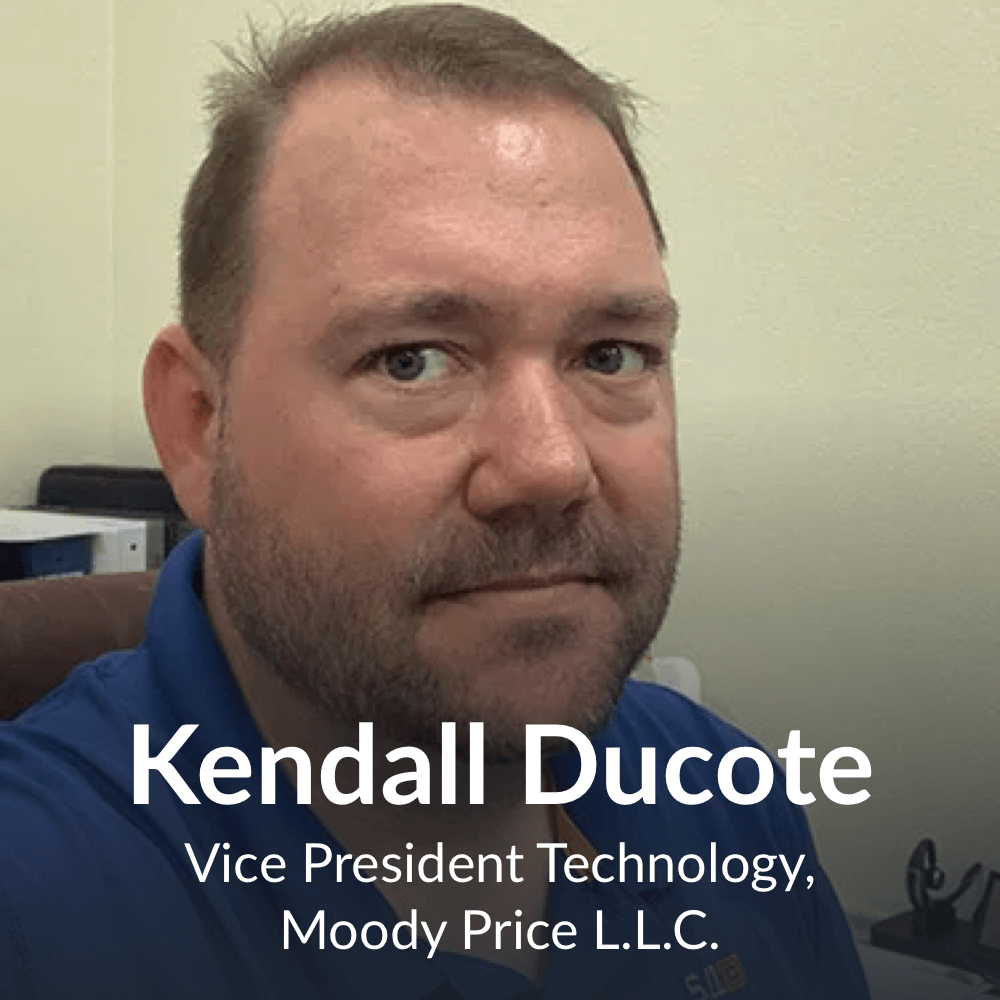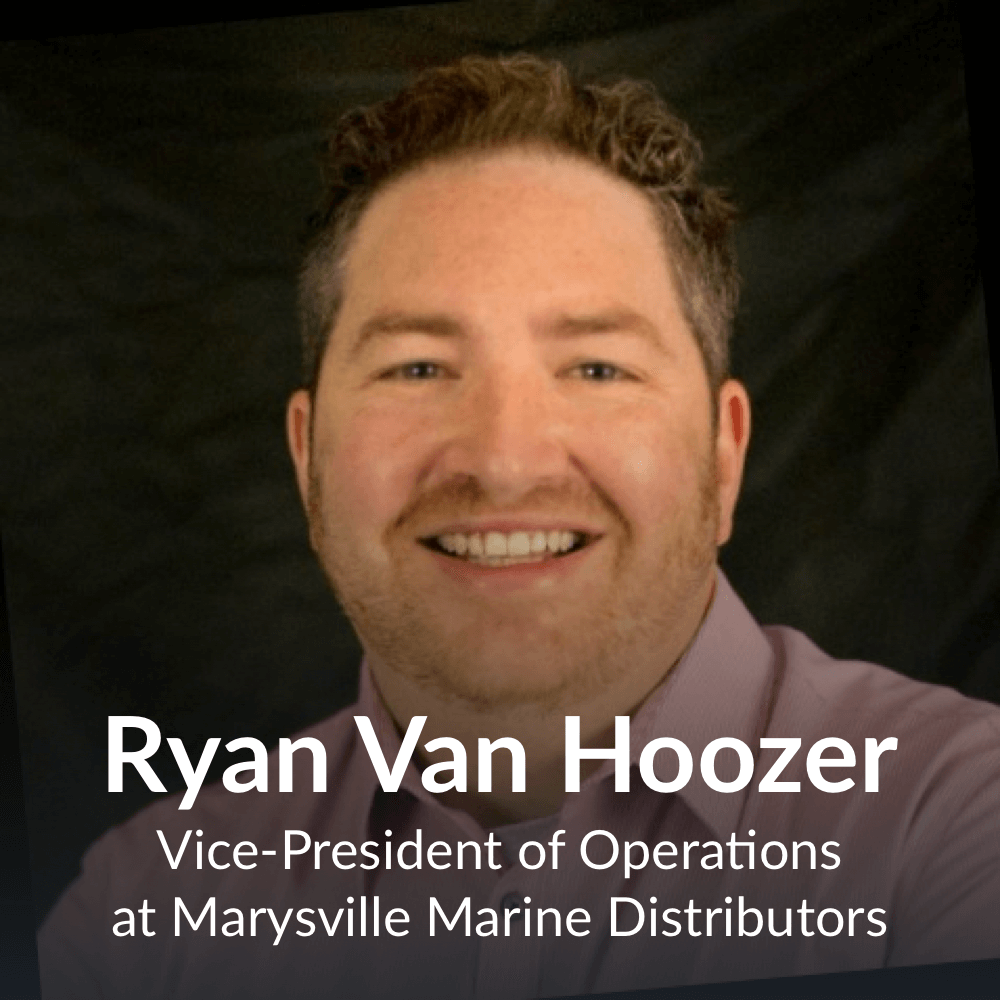Danny Silverman is the Vice President of Strategy and Innovation at Maintex, and he recently sat down with DCKAP’s Founder and CEO, Karthik Chidambaram, for a conversation that goes back over the history of the company itself, up into their most recent use of software and technology to amplify their online sales through integration with Cloras and the revolutionary process of digital transformation.
From the continuous growth and success of Maintex, to how he envisions the future of the JanSan industry itself, their conversation offers many insights to those seeking similar success. They touch upon how important technology really is for future growth and why it’s so important that B2B distributors adapt to e-commerce in order to thrive.
OR LISTEN ON:
Guest Bio
Danny Silverman is the VP of Strategy and Innovation at Maintex, a third-generation family-owned janitorial distributor and cleaning chemical manufacturer headquartered in Los Angeles. In this role, Danny leads the company’s technology and digital efforts among other responsibilities. Prior to Maintex, Danny worked as a systems engineer in both academia and industry. Danny holds a BA in American Studies from Brandeis University.
Show Links and References
Karthik:
Thank you for joining us today, Danny. And it's good to see you.
Danny:
Yeah. Thanks for having me. Happy to be here to talk to you today.
Karthik:
To start off, I was reading a little bit about the history of Maintex and the reasoning behind the name. Way back in the 1960s, when your grandfather, Ralph Silverman, the founder of the company started it, he named it Maintex; and it is maintenance plus technology equals Maintex. It's really, really interesting that way back in the sixties, Miantex did think about technology. And you are a third generation family member. Is that right?
Danny:
That's right. Yes. I think, when you name things in the 1960s, you know, the name Maintex is probably not one someone would come up with today. But when my grandfather left the air force on the GI bill and became a chemist, moved out to California with his young family to start a new company, it was what he knew, which was cleaning products. But he wanted to bring new technologies in terms of the chemistry, in terms of how the products are created.
So, when it was starting off and it was just him in a small lab, he wanted him to differentiate on that side. And obviously as we've grown, we've had to embrace technologies of all types, not just the chemical, but the computer.
Karthik:
Cool. Can you talk us through some of the early days of Maintex? Have you always invested in technology and how has the business changed over the years?
Danny:
Absolutely. When we started out, it was, you know, shoes on the street, uh, going and knocking on doors, going to the payphone to call into the office to see if you had any messages.
And then eventually pagers were invented. You know, things were pretty different back then. But it quickly grew such that we couldn't do things on paper anymore. And we needed to invest in various computer systems, and relatively early, we adopted, you know, a very basic sort of ERP. And over the years, we've just upgraded and grown that so that we have, you know, a couple of decades of sales, history and information in there that have allowed us to grow with our customers and better understand our customer base. So from starting from, you know, pen and paper all the way up to modern day, we've just had to keep growing with the times.
Karthik:
Have you worked with your grandfather and has he taught you business lessons? I’m just curious.
Danny:
Absolutely. Yeah. I mean, my grandfather isn't around anymore. He passed in 2010 before I officially joined the company. But when I was young, I would come in on the summers and on weekends to help out around the office. And when I was very young, I would just come in and, you know, draw pictures and wander around on a bicycle. So, I've been involved with the company in some form since I was very little.
I think my grandfather's most important lessons were about how you run a business and treat your employees and your customers. Treating people right and they'll treat you right. Doing right by your customers and you'll keep them for life.
Karthik:
That's amazing, and it’s also very inspiring. Nothing like learning from your granddad. Thank you. Danny.
The JanSan industry has seen a huge spike in sales during the pandemic with products that you sell, like disinfectants and other hard surface cleaners. Are you looking at the same kind of sustained growth post the pandemic, and how do you see the future of the JanSan industry evolving?
Danny:
That's a great question. During the pandemic, when so many businesses had to shut down, we were sort of counter-cyclical, it was our time to shine. Everyone needed the products that we make, because they were just shown to be so essential, be it disinfectants, cleaning products, soaps. So, we were running nonstop. We brought on a third shift. We were making as much disinfectant as we possibly could and distributing it to some of our biggest customers, including hospitals and schools while they were open.
So, it was a completely crazy time. Things have calmed down quite a bit since then, as the economy is starting to normalize a bit. What we're seeing now, is just a huge disruption in the supply chain, like we've never seen before. Getting raw materials, getting products to sell is harder than it's ever been. So it's really hard to say where things are going to net out in 2021. But I will say that I think the pandemic has shown just how important and essential cleaning and janitorial is to a well functioning society. So we are optimistic that as more people have seen that message, we'll be able to provide more value.
Karthik:
You recently invested in Cloras, our integration platform, and you continue to invest in tech. Can you talk about some of the early technology investments you made at Maintex and its impact before investing and after investing?
Danny:
Some of the investments in technology that have had the most impact for us is in reporting and business intelligence. I think as we've grown, we've done a lot sort of by gut instinct, what we have always known works, but the more we've been able to dive into our data, the more we've learned about our business and about our customers and about the pieces that we're missing.
So, some of our most effective investments have been in reporting and BI. And then in this most recent round, what we realized was that we needed to provide our customers with a more consumer-like experience in terms of purchasing. Not just calling in or placing an email, but going to a really full featured web experience to place their orders. I don't want to say Amazon-like, cause that's what everyone says, but certainly because it is B2B and is a little different, but we did want to provide them with a really modern experience. And Cloras is what helped us to bridge that gap and to get there.
Karthik:
Thank you for being a customer of DCKAP, and we really enjoy working with you.
And thanks for using the Cloras platform. Can you talk a little more about your experience using Cloras? And how is the platform actually helping you create low effort experiences with your customers?
Danny:
We evaluated various e-commerce solutions and determined that, in our case, BigCommerce was the right move, but our ERP platform does not integrate with any of these third-party systems. The Cloras product and the team were just incredibly helpful in allowing us to bridge that divide, to work with us, to determine the data needs, the logic, and to build all of those integrations. And then, since we've launched about a month and a half or two months ago, the platform has been rock solid, stable, incredibly reliable, provides great logging and error messages so we can debug anything that might go wrong. So, it's been a really excellent investment for us.
Karthik:
Thank you, Danny. What is your take on B2B customers adapting to e-commerce? What advice do you have for other JanSan distributors out there?
Danny:
I think for any B2B business, it's really important to understand where your customers are. In our case, a lot of our customers are more traditional and while they're excited about moving to a modern online platform, they may have a way of doing things that they've been doing for years. And there are definitely a few things we missed along the way when we launched our new site, where customers were confused or [we] were missing features that we didn't even realize that they had been using before on the old system.
So, I think if I had to do it again, I would definitely spend more time doing sessions with customers, walking through how they use our site and our services, and that would have helped us to avoid a few of those pitfalls. I think it's just really important to keep in mind in B2B that it is not, you know, as much as we talk about B2B and B2C crossover, some of the needs are different. Be it, budgeting or approval workflows, or you know, corporate allowing and being able to purchase from multiple accounts. There are just some things that are a little different than you would have in a B2C world. And it's important to really lock down all the details of how your business works and how your customers work and make sure that when you build your new platform and build your new integration, you take all of that into account.
Karthik:
A couple of final questions. What book are you reading right now?
Danny:
Okay. Sure. So I recently read a really interesting book that I love to tell people about. It's called The Warmth of Other Suns. It's an exploration of the great migration, which was a time period in the early 20th century when a large proportion of the black population of the Southern US migrated north or west in search of a better life in the search of new opportunities. And it really was a transformative time in American culture in terms of how cities changed in terms of how society changed. But it also showed, in some ways, you know, a lot of what we still need to do to make America a country that is accessible for everyone where everyone has opportunities. So I thought that was just a great book.
My most recent read is some Agatha Christie mystery books. Because I always enjoy those. So on a lighter note, yeah.
Karthik:
Awesome. And I'm actually reading Range by David Epstein. It's actually a great book where he talks about how having a broad range of skill sets, and I mean a lot of experiments help in tasting success. So, I really enjoyed reading that.
And one final question Danny. I love your background. Is that your warehouse or...?
Danny:
Yeah, this is one of our four warehouses. If you saw my real background, it would be my living room, but we're mostly back in the office at this point. And this is when one of our warehouses was looking particularly clean. You can see in the background, it's all the products in this warehouse are the chemical products that we manufacture, blend and package ourselves. Um, in other warehouses, we also have. Paper products and, uh, and uh, other things that we bring in equipment and supplies.
Karthik:
Yeah. It looks very clean. And so that's why we need to buy it from Maintex.
So thank you so much, Danny. Thanks for sharing your insights. Thanks for your learnings. It's been great talking to you today, and it's been a pleasure. Thank you.
Danny:
Thank you. It's been really nice speaking with you and it's been great working with the DCKAP team and the Cloras product. I wouldn't be here if I didn't believe, you know. I've had experiences with other products and with other teams that have not been nearly as smooth. So, I've really enjoyed working with you guys.
Karthik:
We appreciate it.
Sign up to receive email updates
Enter your name and email address below and I'll send you periodic updates about the podcast.




